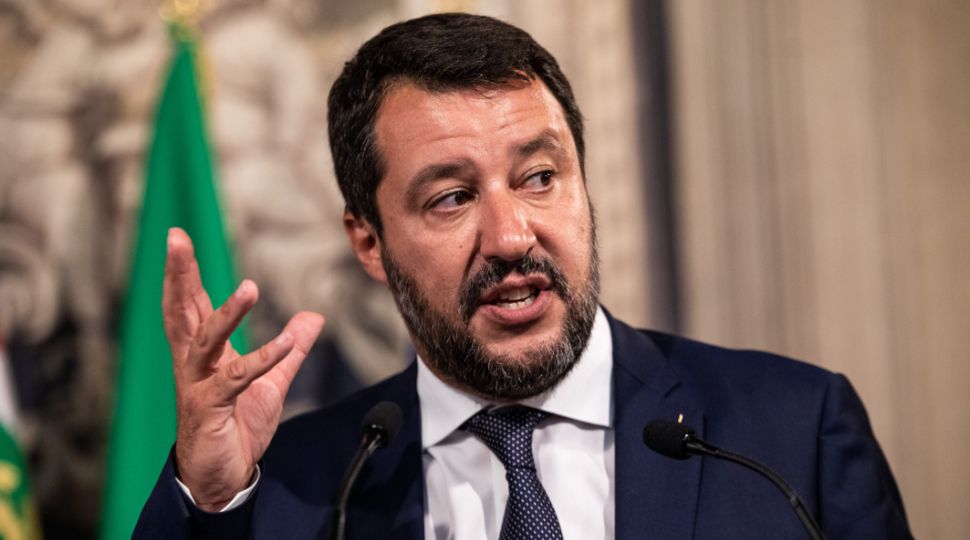New Coalition Resolves Political Crisis in Italy

Why the Government Collapsed
The coalition under Conte was broken with the pretext of opposition to M5S senators’ votes against the construction of a tunnel in the Alps for a high-speed railway on Turin-Lyon (TAV) route. The League is strongly in favour of this investment, so Salvini put in a censure motion. Both parties, though, have had a different position on this issue since the formation of their government in May 2018. The real reason for the collapse of the government was Salvini’s ambitions to take power.
The League won the European elections with 34% of the votes, so Salvini was expecting to repeat this result in early parliamentary elections. At the end of May, he provoked the political crisis by demanding the government implement his party’s proposals, including a tax reduction, an increase in parliament’s influence over the judiciary, liberalisation of the public procurement law, an increase in northern regions’ autonomy, and the construction of the TAV. M5S leader Luigi Di Maio said his party was ready to make concessions, which made it difficult for Salvini to leave the government then.
Salvini also wanted to avoid political and legal responsibility. In February, M5S senators discussed voting for waiving Salvini’s parliamentary immunity over the detention of a rescue ship with migrants in Catania in summer 2018, based on a decision by Salvini, acting as the interior minister. In the end, though, all voted against it. On 10 July, U.S. media published a conversation from October 2018 between an important League activist, Gianluca Savoini, with some Russian businessmen. The Russians offered a deal to Savoini in which they would buy some fuel from Italian company ENI for $1.5 billion followed by ENI making several financial transactions on their behalf. One was to be a $65 million payment to finance the League’s European campaign. After the report became public and M5S had declared it would establish an inquiry committee and support a court case, Salvini threatened to leave the coalition.
Political Consultations
According to the Italian constitution, after the collapse of a government, the president must call for elections or nominate a candidate supported by parliament. On 21 August, President Sergio Mattarella, who has PD origins, started consultations with the leaders of the parliamentary parties.
Elections in autumn could be difficult because the government will be negotiating with the EC on the budget for 2020. In October 2018 and again in June 2019, the EC warned Italy it might impose the Excessive Deficit Procedure (EDP) on the country because its public debt was higher than 130% of GDP and it had a budget deficit higher than 2% of GDP. Not resolving the deficit problem could lead, for example, to an increase in the VAT tax.
Right-wing party leaders Salvini, Silvio Berlusconi (Go Ahead Italy, FI) and Giorgia Meloni (The Brothers of Italy, FdI) called for elections. FI and FdI expected to establish a government with the League afterwards. The League is supported by 32% of voters, PD by 24%, M5S by 20%, and FI and FdI each by 7%.
The majority of the MPs from M5S, PD, and the smaller parties was against early elections. M5S and PD are worried the League could take power while the smaller parties don’t want to risk losing seats. On 23 August, M5S and PD started to negotiate a new coalition. PD leader Nicola Zingaretti proposed that any new government respect the EU rules on deficit reduction and accommodate migrant-rescue vessels. M5S expects PD to support reducing the number of MPs from 949 to 604. Another challenge was who might have been blocked from participation in the next government. PD did not want either Conte or Di Maio to join, but M5S resisted and so finally, on 5 September, the government was formed with Conte as prime minister and Di Maio as foreign affairs minister.
Conte’s Second Government
The first challenge of the new government will be to make a deal with the EC and avoid an economic crisis. M5S still wants to maintain the lower retirement age and guaranteed income for the unemployed and the poor. PD demands an income tax cut and an increase in funds for education. Both parties advocate for an improvement in taxation, for example, by the digitalisation of financial settlements. Avoiding an economic crisis may be a little bit easier because financial markets favour the new government. The formation of the coalition resulted in the difference in interest rates between Italian and German treasury bonds dropped to175 basis points, the lowest level since March 2018.
M5S and PD have a similar agenda in European policy. They advocate for the finalisation of the banking union, the introduction of European unemployment insurance, and modification of the Services Directive to preclude EU Member States from competing on the single market based on low taxes or low labour costs. They also support the EC proposal to establish new criteria for granting or maintaining Union funding, such as the rate of unemployment and the number of migrants received.
In 2019, there has been also a convergence of views on migration policy between both parties. M5S stopped opposing vessels rescuing migrants, in part because of the steady decline in the number of migrants since the middle of 2017, which on the central-Mediterranean route has decreased from 181,300 in 2016 to 23,500 in 2018. This decrease is mostly because of the agreement between Italy and the Libyan Coast Guard to prevent vessel departures from Libya, signed by former Interior Minister Marco Minniti (PD) in 2017, and not Salvini’s actions. Moreover, M5S and PD demand a permanent mechanism to assign migrants to all EU Member States.
The change of government has stopped the build-up in League’s support since March 2018. It also has given the coalition a chance to compete with the League in the next regular elections, which will take place at the latest in spring 2023. In August, the League’s support decreased from 36.6% to 32% while support for PD and M5S increased from 39.5% to 44% in total. Whether these trends continue probably depends on the government’s economic policy. According to public opinion surveys, Italians expect lower unemployment, tax cuts, and a balanced budget; however, 75% of Italians prefer no VAT increase to a cut in other taxes.
Conclusions
Salvini miscalculated in trying to force a break in the coalition government. His actions have not led to early elections and the new parliamentary majority probably will waive his immunity if a court requests it. Presumably, a few inquiry committees will be formed to investigate whether Salvini broke any laws as interior minister. Simultaneously, the conflict with the League will make the M5S-PD government more stable. Unless Salvini’s party regains the lead in the polls, the government is unlikely to collapse, and this could even lead to a division of the political spectrum, both in the right-wing (League, FI, FdI) and leftwing (PD, M5S, and smaller parties) camps.
The pro-European image of the new government will make it easier to deal with the EC over avoiding the EDP. Its introduction could strongly increase League’s support, unfavourable for both mainstream political sides. To find some budget savings, the government probably will not pursue the tax cuts and will try to improve collection. However, the actual retirement age and the guaranteed income for the unemployed and poor will remain on the table. Migration policy will change and Italy will again resume receiving migrant-rescue vessels while also advocating for the establishment of a permanent mechanism for sharing migrants across the EU Member States.
The change of government also reduces the risk of destabilisation of the eurozone, which is strongly connected with Poland’s economy. The scandal over League financing by Russia will intensify the internal political struggle in Italy and make the government less vocal in demanding lifting EU sanctions on Russia.


